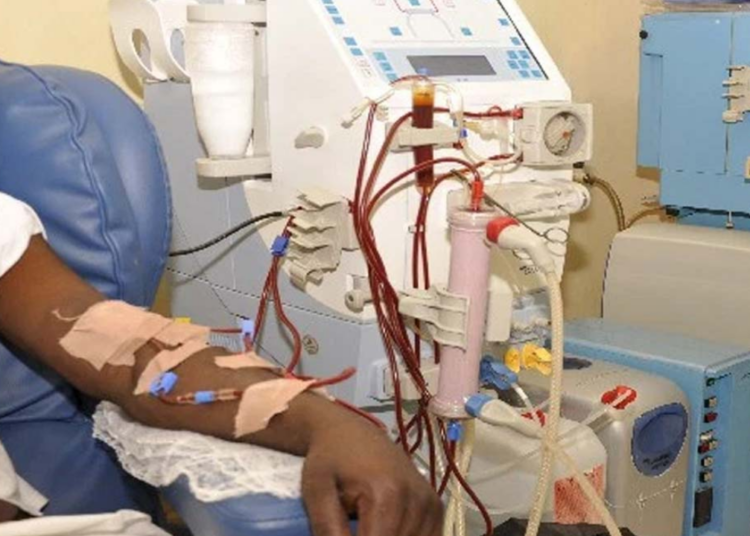Nigerian Association of Nephrology (NAN) has disclosed that 18,000 Nigerians would need dialysis yearly with only 160 nephrologists available in the country to attend to them.
This is even as the association advocated for kidney transplantation, which is key in reducing the morbidity and mortality rate of patients with End Stage Renal Disease (ESRD) to the barest minimum.
In a document, made available to LEADERSHIP, the national president, Nigerian Association of Nephrology Nurses, Ajibike Shanu Omolola said every individual is blessed with two bean shaped kidneys for the purpose of excreting metabolic waste and maintaining internal homeostasis of the body.
When the kidneys are unable to serve this purpose as a result of disease condition, the president said renal failure is said to have resulted, adding that ESRD is a psychological debilitating illness with considerable emotional morbidity. It is a disease that can destroy the patient’s life goals and precipitate a vicious circle of depression, mood swings and unfulfilled hopes, she said.
Meanwhile, Omolola averred that kidney transplantation is the best approved renal replacement therapy, adding that the biggest limitation remains a general organ donor shortage, not only in terms of absolute numbers, but particularly regarding preservation techniques.
“Kidney donation is very essential in order to assist those with End Stage Renal Failure. However, it has been shown repeatedly that the quality of life with a functioning transplant is superior to that which is usually achieved in dialysis. Transplant recipients generally have a higher level of functional ability, are more likely to return to work in better health and have a higher level of wellbeing, life satisfaction and happiness than the patients on any form of dialysis.
“The cost of kidney transplantation is cheaper than dialysis therapy in end stage renal failure. Apart from the cost, kidney transplantation is done once and the patient resumes back to almost normal life unlike dialysis that will be done two or three times in a week. With the Improvement in investigation prior transplantation, transplant techniques and technology the rate of rejection has been drastically reduced,” she explained.
Sadly, in Nigeria, kidney donation has become a great phobia because of ignorance among people in the society, the president lamented, while explaining that phobia simply means irrational fear produced by a specific situation which the person or an individual attempts to avoid.
She however called on Nigerians to donate a kidney, adding that kidney donation should no longer be a phobia rather it should be embraced. “Individual should come forward to donate one kidney without any hesitation, as a kidney is enough for an individual to live a normal life. Also, an individual can put it into writing that in case of sudden death, his or her kidneys can be removed for the benefit of living ones that are in need of kidney transplantation,” she stated.
Omolola also called on health care professionals to serve as advocates for patients with ESRD in the area of kidney donation, while urging government and non-governmental agencies to support patients financially to be able to comply with treatment modality.
“Government should also establish and formulate policies to govern organ sharing and distribution scientific registries in Nigeria and train more personnel in this field so that we can have more competent hands and transplantation centers in Nigeria,” she added.
Studies reveal that significant percent of women and girls had personally experienced online violence or abuse
We’ve got the edge. Get real-time reports, breaking scoops, and exclusive angles delivered straight to your phone. Don’t settle for stale news. Join LEADERSHIP NEWS on WhatsApp for 24/7 updates →
Join Our WhatsApp Channel










